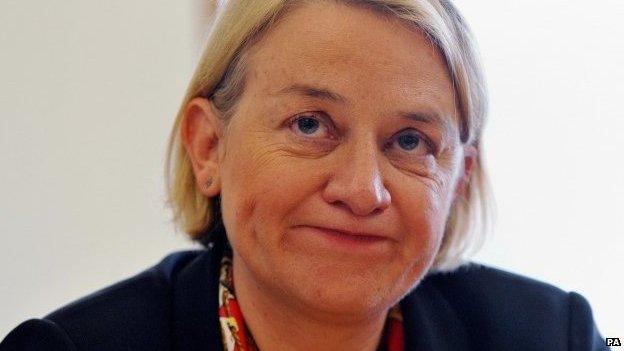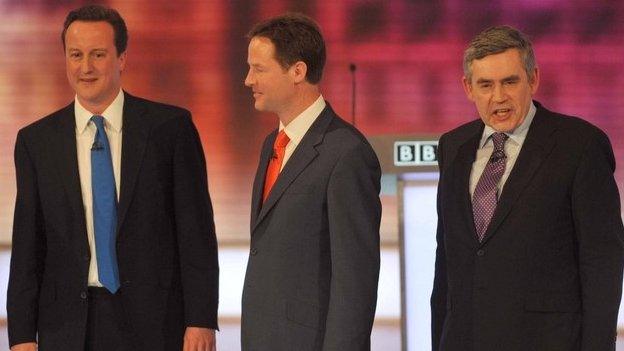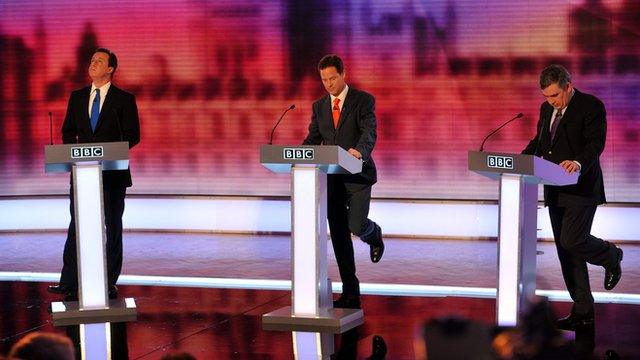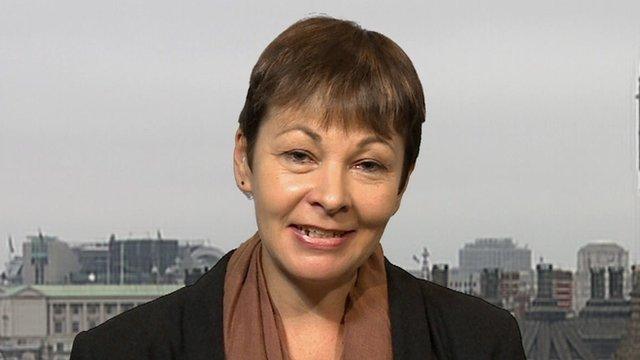Greens are 'not a major party', suggests Ofcom
- Published

Green party leader Natalie Bennett said she was "deeply disappointed" by Ofcom's decision
The Green Party says it is "deeply disappointed" by an Ofcom consultation suggesting it does not have "major party status".
The broadcast regulator's decision is a blow to the party's bid to be included in the TV election leader debates.
Prime Minister David Cameron has said he does not want to take part in the debates unless the Greens are included.
The current proposals only include the Conservatives, Labour, the Liberal Democrats and UKIP.
Ofcom published a consultation on which parties should be accorded "major status" ahead of the general election.
Those which are granted that status are entitled to at least two party election broadcasts on each of the TV and radio channels covered by the system.

Broadcasters are drawing up plans for new TV leader debates following their introduction in 2010
In addition, the BBC, ITV, Sky and Channel 4 have proposed three leaders' debates with combinations of David Cameron, Ed Miliband, Nick Clegg and Nigel Farage. The Greens, who are not included in the broadcasters' initial plans, are threatening legal action.
Ofcom said the Green Party had not demonstrated significant support in previous general elections.
Green Party leader Natalie Bennett said Ofcom was ignoring the Greens' strong support in sections of the community.
At the moment the regulator's list includes the Conservatives, Labour and the Liberal Democrats across Great Britain, the SNP in Scotland and Plaid Cymru in Wales.
Farage pleased
In Northern Ireland, the major parties are the Alliance Party, the Democratic Unionist Party, Sinn Fein, the Social Democratic and Labour Party and the Ulster Unionist Party.
The regulator is seeking views on whether others, external should be included in its lists for the elections on 7 May and says it thinks UKIP will qualify in England and Wales. A final decision is due in March.
Its initial view is that the Green Party has "not demonstrated significant past electoral support in general elections".
If UKIP was included it would be the first time this has been the case at a general election campaign. Ofcom pointed to the "significant support" for UKIP in the 2014 European and local elections and to the party's two parliamentary by-election victories.
"This is the first time nationally that UKIP has been recognised as a major party. I am very pleased indeed," UKIP leader Nigel Farage told the Telegraph., external
Green Party leader Natalie Bennett said she was "deeply disappointed" by the draft Ofcom ruling.
'Indefensible decision'
"The media regulator has failed to grasp the fast-moving, fluid state of British politics today, and that fact that voters are seeking out the choice of real change," she said.
"Ofcom should not be making that option harder to find, but ensuring that voters have the chance to hear and judge the full range of political options today.
"It is also important to note how Ofcom is ignoring the strong support for the Green Party in particular sections of the community, particularly the young and students. Their engagement in the political process is vital for the future, and they will rightly expect to hear their views represented and explored in the mainstream media."
Tory MP Zac Goldsmith, a prominent environmentalist, joined criticism of what he called a "disgraceful, indefensible decision by Ofcom".
Ofcom also considered and rejected the idea of recommending major party status for Northern Ireland's TUV party.
- Published10 January 2015

- Published14 October 2014
